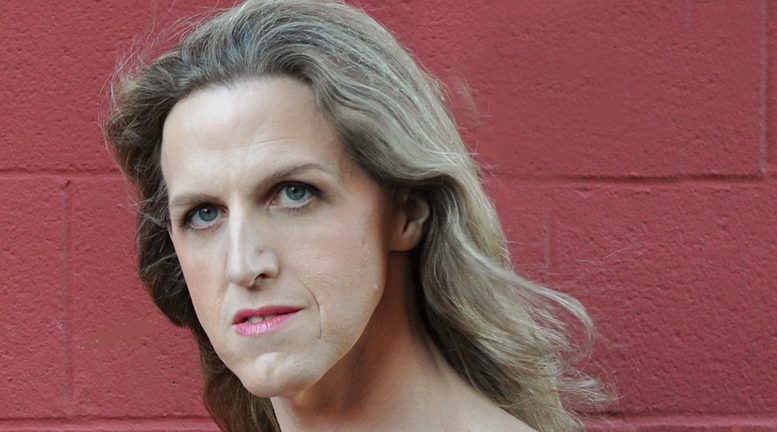The sort of lingering pain that never really leaves you
By: Lorelei Erisis*/TRT Columnist—
I’m going to be honest with you dear readers; I’m having a very hard time. You see, a friend of mine was murdered quite recently. Her name was Christa Leigh Steele-Knudslien.
If you’d like to know the more factual, newsy details of the story, there have already been a good number of stories written. Including quite a good one in this very paper.
But I’m not here to give you the just-the-facts reporting about my friend’s murder. Even though I was interviewed for almost all those stories. I honestly doubt I’d be capable of writing a story like that myself. It’s too close. I don’t stand a chance of even pretending to be unbiased about this.
Because I am hurting.
Nothing prepares you for something like this. There’s no manual for how to deal with a friend being murdered.
And sadly, I am no stranger to death. Not even of the tragically-too-young variety.
Before I turned 30, I had already lost two of my best, closest friends to drugs. One, when we were both just 20, from an apparent heroin overdose. The other, shortly after he actually managed to get clean from several years of Adderall abuse, among other drugs, had his heart just given out on him.
Then, there were the various family members who died too young. An uncle died from suicide when I was very young; another uncle from a vicious cancer that returned suddenly after years of remission. And, a favourite aunt whose system was just wrecked from too many years from drug and alcohol abuse.
That’s not considering all of the other family members who died of more natural causes during my own lifetime or the less close friends and acquaintances who died too young because of drugs, accidents, bad luck, or just dangerous lifestyles.
In fact, just about two weeks before Christa was murdered, I found out through Facebook that a friend of mine from High School had died unexpectedly. With everything going on, I still haven’t even had the chance to find out how.
At this point, you would think I’d be an old hand at dealing with death. My mother even told me recently that I write really good eulogies.
I do know a few things. The cycle of it has grown all too familiar. There’s the initial shock of finding out, followed by gut-wrenching grief, usually hand-in-hand with uncontrollable sobbing tears. Then, there’s a general sadness and bleak feeling to pretending to be okay, which hopefully leads to feeling not awful for a while. Eventually, little by little, life keeps moving on. There are a few disconcerting moments of joy as you get the hang of living life again. Eventually, the pain fades to a dullness that can be dealt with and packed away in a dusty corner of the mind.
It never does go away, though. The strangest, most unexpected things can bring that pain right back up to the surface.
But the murder of a friend and comrade is something altogether new and awful to me. Especially in that this death happens to intersect directly with, well, everything I’m doing with my life as an artist, activist, and writer.
This wasn’t just a friend who was murdered. This was a trans woman. She’s the first trans woman, which we know of, to be murdered this year in the U.S., which makes it particularly newsworthy. A big part of my often hard-to-pin down gig is being a trans person that the media can go to, to help them parse trans-related news.
It’s a gig I’m good at partly because I have years of experience in and around media and entertainment. Mainly because I seem to have a talent for making big ideas feel more personal and relatable.
But this is already very, very personal for me. There’s absolutely zero distance. And there’s no getting away from it.
With most of the death I’ve dealt with, there’s a brief explosion of grief and mourning among the group of people most closely affected. But then it fades from my feeds. Folks talk about it less. The pain is allowed to recede a bit, become more private.
However, this death is everywhere I look. It’s in the newspapers and all of my social media feeds. It’s on the lips, whether spoken out loud, or awkwardly unspoken, of everyone I know. Every interaction fills with this calculus of, “Do we talk about it, or do we pretend everything’s normal?”
I have no reasonable expectation that this will change anytime soon. This was the first trans person killed after the yearly reset of our ghastly headcount. Christa’s name and story will likely remain relevant for quite some time to come.
We, as a trans community, remember our dead, or at least we try to. Gods know I’ve written a fairly large number of columns about the need for us to do so and the importance of not turning away from this pain that we all share for our fallen trans siblings.
If this were a normal column, this is where I’d pull all the threads together and leave you with a pithy or poignant point that I want you to take away. But, as I said at the beginning, I’m being honest with you.
I am literally crying as I type this.
I’m sure that eventually I will have more inspiring words. It’s what I’m good at after all. It’s what I do. I’ll be able to wrap up and contain my grief a bit. I know it won’t go away, it never really does. But hopefully I will be able to use it to keep telling Christa’s story and to keep speaking for those trans people who I am sadly sure will follow her in the list of names.
Sooner or later the fire will burn away the tears and I will stand up again to fight and speak out for my trans sisters, brothers, and siblings.
But now I hurt. We hurt. It is difficult even to imagine a world without this grief.
And I am tired of writing eulogies.
*Lorelei Erisis is an actor, activist, adventurer, and pageant queen. Send your questions about trans issues, gender, and sexuality to her at: askatranswoman@gmail.com.







